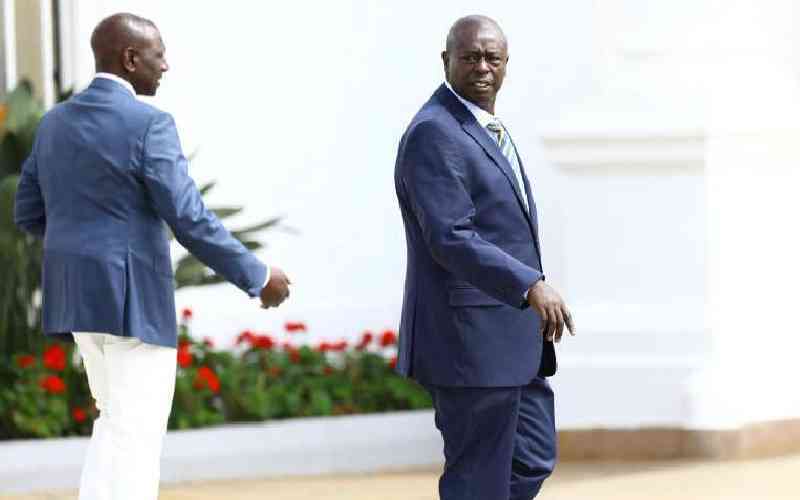×
The Standard e-Paper
Kenya’s Boldest Voice

The impeached former Deputy President Rigathi Gachagua is - at long last- officially out of office, pitched into an uncertain political future and made poorer by the bruising court battles that failed to save his job.
The ex-DP's world collapsed in a month. The bulk of his security detail is gone, his government cars have been recalled and hefty perks could soon be cancelled. The former second in command is, at present, officially barred from holding any public office for 10 years.